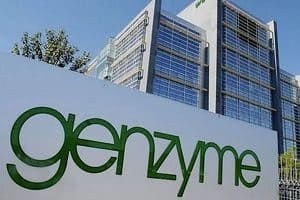
Genzyme Drugs Found To Be Tainted. The U.S. Food and Drug Administration and Genzyme Corporation are advising endocrinological and genetics medicine healthcare professionals that Genzyme products marketed as Cerezyme, Fabrayzme, Myozyme, Aldurazyme, and Thyrogen are potentially tainted with foreign particles. The medications are used to treat rare, serious, and life-threatening diseases. The foreign particles […]

Genzyme Drugs Found To Be Tainted. The U.S. Food and Drug Administration and Genzyme Corporation are advising endocrinological and genetics medicine healthcare professionals that Genzyme products marketed as Cerezyme, Fabrayzme, Myozyme, Aldurazyme, and Thyrogen are potentially tainted with foreign particles. The medications are used to treat rare, serious, and life-threatening diseases.
The foreign particles include stainless steel fragments, non-latex rubber from the vial stopper, and fiber-like material from the manufacturing process and could potentially cause serious adverse events in patients. Cerezyme, Fabrazyme, Myozyme, and Thyrogen are supplied as lyophilized powders requiring reconstitution before administration; Aldurazyme is supplied as a liquid solution.
Potential adverse events from IM administration of a contaminated product could include local pain, swelling, and inflammation. Potential adverse reactions from IV administration of a product contaminated with foreign particles could be more serious, including damage to blood vessels or embolic events, and anaphylactic, allergic, and immune-mediated reactions. It is also possible that the foreign particles could affect how well these products work.
Boston.com reported that Genzyme, located in Cambridge, Massachusetts, recently suffered another blow when a virus was found at its Allston plant. Two of the medications indicated in the recent particle contamination warning—Cerezyme and Fabrazyme—were also recently rationed because of the viral contamination. Combined, the five impacted medications amount to about half of Genzyme’s annual sales, some $4.6 billion.
Globally, about 5,500 people depend on Cerezyme and about 2,500 use Fabrazyme, said Boston.com. Cerezyme treats Gaucher disease, a disorder that caused the build-up of fatty substances in the liver, spleen, and other organs; Fabrazyme treats Fabry disease. Fabry disease does not allow the body to break down oils and fats that accumulate in the eyes and kidneys, explained Boston.com.
Myozyme treats the muscular disorder, Pompe disease; Aldurazyme treats the metabolic disorder mucopolysaccharidosis; and Thyrogen treats thyroid cancer and all three are produced in Framingham Massachusetts and sent to Allston for finishing, according to Boston.com. Cerezyme and Fabrazyme are manufactured in Allston.
The FDA’s warning to physicians urges careful examination of the product vials prior to administration to patients, standard industry operating procedure, said Boston.com. If particles are discovered, the vials should be returned to the manufacturer.
The FDA began its investigation of the Allston plant in October to review Genzyme’s production operations, Boston.com reported. The Allston Landing plant is located on the Charles River. Because the issue is not considered wide scale and because of the rarity of the diseases involved, a drug recall was not initiated, according to Boston.com
Genzyme stated that the particle contamination issue is unrelated to the viral contamination issue.
The personal injury attorneys at Parker Waichman LLP offer free, no-obligation case evaluations. For more information, fill out our online contact form or call 1-800-YOURLAWYER (1-800-968-7529).


